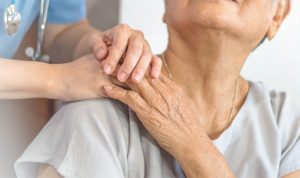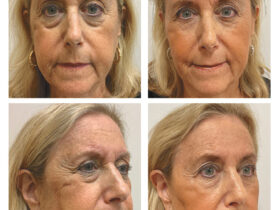 Many Americans are uncomfortable talking about death, and even fewer are eager to care for a terminally ill loved one. Hospices, which specialize in the care of the dying, work to dispel fears and misunderstandings that patients and their families may have about the dying process. This includes educating them about options for pain control and the benefits and side effects of each medication and other treatment tools.
Many Americans are uncomfortable talking about death, and even fewer are eager to care for a terminally ill loved one. Hospices, which specialize in the care of the dying, work to dispel fears and misunderstandings that patients and their families may have about the dying process. This includes educating them about options for pain control and the benefits and side effects of each medication and other treatment tools.
One of the medications commonly associated with end-of-life care is morphine. Unfortunately, this helpful drug has unfairly earned a negative reputation. Some people mistakenly believe that hospices administer excess doses of the drug to keep patients quiet or to purposely hasten their deaths. Dr. Cynthia Nehrkorn, Vice President of Medical Services for Avow Hospice in Collier County, who also holds a bachelor of science degree in pharmacy, dispels these myths about morphine and other medications and how they’re used at the end of life.
“There are many misunderstandings about hospice care, but the one that saddens hospice professionals most is that we quicken the dying process for patients. This is simply not true,” Dr. Nehrkorn says. “The heart of the hospice philosophy is that death is a natural transition that we must neither slow nor advance. Our role is to support patients with comfort measures that allow them to die naturally, in peace, and to educate and console their family members.
“Morphine is just one tool hospices have to provide that peace,” Dr. Nehrkorn continues. “It eases shortness of breath, relieves pain, and helps patients feel calm and comfortable. Despite its reputation as being overused in hospice, morphine is not always the most effective drug for terminally ill patients. It’s not the strongest medication we have, and its side effects – usually drowsiness or confusion – may be uncomfortable for patients and their families. That’s why we have a hierarchy of medication options to address each patient’s pain levels, allergies, preferences, and tolerance of side effects. Some patients, for example, don’t do well on long-acting medicines, but do feel better with drugs that are administered more frequently, in smaller doses, or subcutaneously instead of orally. The commitment of the hospice team is always to respect the desires of the patient and family, and to prioritize creating peace of mind for them, however they define that peace.”
Hospice team members are trained to recognize non-verbal signals from patients that indicate their pain requires additional relief. Family caregivers may be confused by these signs, believing that the patient is simply ‘not being herself’ that day or is otherwise out of sorts. “Patients may grimace, moan, or stiffen their arms or legs when their pain escalates,” explains Dr. Nehkorn, board-certified in internal medicine and hospice and palliative care medicine. “We talk with family members about achieving a balance of pain control that also supports the level of interaction the family and patient want. Some caregivers are distressed that a particular medication makes the patient drowsy and less able to converse, and they wonder if the patient is ‘over-medicated’ or being improperly treated. We understand that family members need our guidance, so we spend a lot of time educating them about the various tools we can use to make their loved one comfortable. That information makes the patient’s dying process far less frightening for families – and it can relieve or prevent any unnecessary guilt they may have about decisions they make as caregivers.”
In addition to prescription medicines, hospices like Avow can also bring pain relief and peace to patients through massage therapy, manual lymph drainage to reduce swelling, music therapy, and Reiki energy work. For spiritual and social concerns, hospices offer the support of a nondenominational chaplain and a social worker to work with both the family and patient. This full circle of support, says Dr. Nehrkorn, eases the transition of death for the entire family.
“Our culture doesn’t normalize, let alone hold sacred, the natural ending of life,” Dr. Nehrkorn reflects. “When we face something unknown, it’s easy to feel frightened or overwhelmed, and to believe untruths or misunderstandings that justify our fears. The greatest gift hospices can give their patients and families is nonjudgmental support – and the information every party needs to feel at ease. That is what great hospice programs provide: peace of mind for everyone, in the ways and at the times they need it most.”
For more information about Avow’s nonprofit hospice, palliative care, or grief support programs, visit www.avowcares.org or call 239-280-2288.
AVOW
239.280.2288
www.avowcares.org









